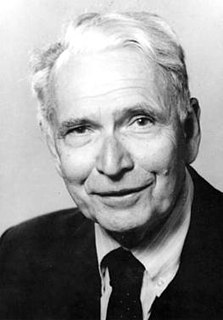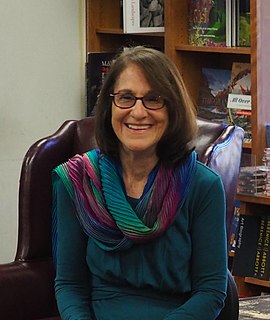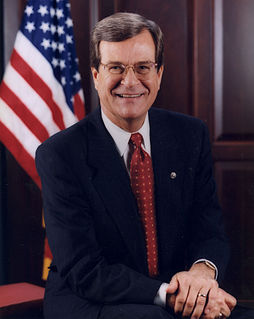A Quote by Warren Weaver
Science tries to answer the question: "How?" How do cells act in the body? How do you design an airplane that will fly faster thansound? How is a molecule of insulin constructed? Religion, by contrast, tries to answer the question: "Why?" Why was man created? Why ought I to tell the truth? Why must there be sorrow or pain or death? Science attempts to analyze how things and people and animals behave; it has no concern whether this behavior is good or bad, is purposeful or not. But religion is precisely the quest for such answers: whether an act is right or wrong, good or bad, and why.
Quote Topics
Act
Airplane
Analyze
Animals
Answer
Answers
Attempts
Bad
Behave
Behavior
Body
Cells
Concern
Constructed
Contrast
Created
Death
Design
Faster
Fly
Good
How
Insulin
Man
Molecule
Must
Ought
Pain
People
Precisely
Purposeful
Quest
Question
Religion
Right
Science
Sorrow
Tell
Things
Tries
Truth
Whether
Why
Will
Wrong
Related Quotes
But in the end, science does not provide the answers most of us require. Its story of our origins and of our end is, to say the least, unsatisfactory. To the question, "How did it all begin?", science answers, "Probably by an accident." To the question, "How will it all end?", science answers, "Probably by an accident." And to many people, the accidental life is not worth living. Moreover, the science-god has no answer to the question, "Why are we here?" and, to the question, "What moral instructions do you give us?", the science-god maintains silence.
Science is very good at answering the 'how' questions. 'How did the universe evolve to the form that we see?' But it is woefully inadequate in addressing the 'why' questions. 'Why is there a universe at all?' These are the meaning questions, which many people think religion is particularly good at dealing with.
Is there an answer to the question of why bad things happen to good people?...The response would be…to forgive the world for not being perfect, to forgive God for not making a better world, to reach out to the people around us, and to go on living despite it all…no longer asking why something happened, but asking how we will respond, what we intend to do now that it has happened.
Whence came I, whither go I? Science cannot tell us a word about why music delights us, of why and how an old song can move us to tears. Science is reticent too when it is a question of the great Unity – the One of Parmenides – of which we all somehow form part, to which we belong. The most popular name for it in our time is God – with a capital ‘G’. Whence come I and whither go I? That is the great unfathomable question, the same for every one of us. Science has no answer to it.
Good description is a learned skill, one of the prime reasons why you cannot succeed unless you read a lot and write a lot. It’s not just a question of how-to, you see; it’s also a question of how much to. Reading will help you answer how much, and only reams of writing will help you with the how. You can learn only by doing.
Lying in bed, half-covered by the blankets, I would drowsily ask why he had come to my door that night long ago. It had become a ritual for us, as it does for all lovers: where, when, why? remember...I understand even old people rehearse their private religion of how they first loved, most guarded of secrets. And he would answer, sleep blurring his words, "Because I had to." The question and the answer were always the same. Why? Because I had to.
The key question isn't "What fosters creativity?" But why in God's name isn't everyone creative? Where was the human potential lost? How was it crippled? I think therefore a good question might not be why do people create? But why do people not create or innovate? We have got to abandon that sense of amazement in the face of creativity, as if it were a miracle that anybody created anything.
I'm learning a lot how to be good at what I do and also how lucky I am and take it all in and be grateful for all this late in life success I've been having and it's good to have people that have been around and successful for awhile and work with them and see how they behave and it's why they are who they are and why they're still successful.




































